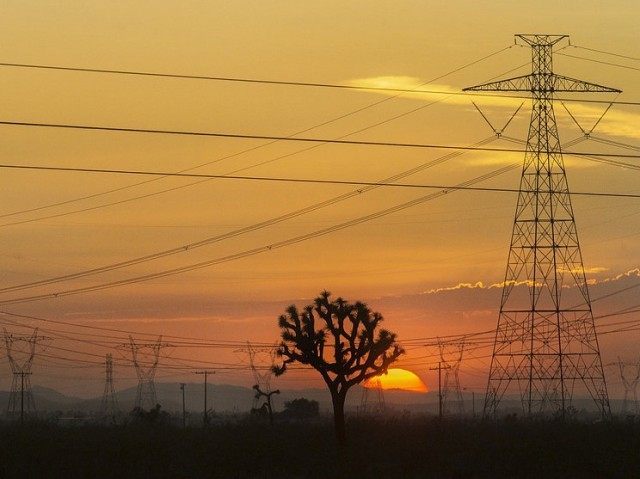The California desert city of Adelanto will soon be home to more than two dozen medical marijuana cultivation companies, in a move the city hopes will bring it back from the brink of financial ruin.
According to the Orange County Register, 27 companies have scored permits to begin growing medical marijuana in Adelanto since the city became the second in California (after Desert Hot Springs) to legalize commercial marijuana cultivation in November.
Ky-Mani Marley, son of reggae legend Bob Marley, has reportedly already lent his name to a project in the city, while actor and noted pot enthusiast Tommy Chong, and Cypress Hill rapper B-Real, have also reportedly expressed interest.
The city began unloading dozens of acres of land to area businessmen; Don Kojima of Newport Beach reportedly nabbed an empty, 47-acre city-owned industrial park for a fire-sale price of just $375,000.
But real estate prices have skyrocketed since the City Council voted 4-1 in November to legalize commercial cultivation.
Adelanto — a city of just 33,000 residents that faced the prospect of bankruptcy and disincorporation just one year ago — hopes the new marijuana cultivation projects will bring employment opportunities and tax revenue to the financially-distressed city.
The city has already reportedly earned $203,000 in application fees alone, and could earn up to $12 million per year in tax revenue if it adopts a tax model similar to the one employed by Desert Hot Springs. For context, the city’s entire annual general fund budget is reportedly $13 million this year.
The green rush in Adelanto comes just after California Gov. Jerry Brown signed a trio of bills into law in September that set up the state’s first-ever regulatory system for medical marijuana. The Medical Marijuana Regulation and Safety Act provided statewide rules for the cultivation, distribution, sale and taxation of medical marijuana. The Act also established the Bureau of Medical Marijuana Regulation, which will oversee everything from marijuana farms and medical dispensaries to product safety labs and distribution channels.
Late last month, the state Assembly moved quickly to fix what could have been a fatal error in the law: an unintentional March 1 deadline for cities to adopt their own ordinances regarding the growing and sale of medical marijuana. The mistake caused many cities in California to outright ban cultivation rather than attempt to set up regulations under the tight deadline. The Assembly ultimately voted unanimously to remove the deadline.
Competition for commercial marijuana cultivation space is expected to intensify ahead of the November election, when one of a number of competing ballot measures could make California the fifth state in the nation to legalize marijuana for recreational use. Several ballot measures have already been cleared to collect signatures, but none so far has qualified for inclusion in the 2016 ballot.

COMMENTS
Please let us know if you're having issues with commenting.